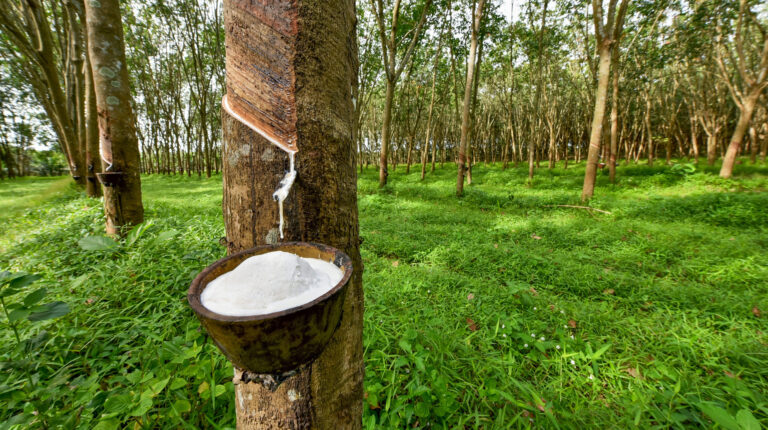Yokohama Rubber has adopted RubberWay Geo-Mapping, a risk assessment tool introduced in March 2024 by sustainability solutions provider RubberWay, aiming to enhance sustainable natural rubber procurement.
Yokohama’s supply chain for natural rubber includes numerous small-scale rubber plantations, intermediaries and processing plants, making it challenging to assess and monitor environmental risks such as illegal deforestation and poor water resource management. The company says ensuring traceability has become a critical concern in promoting sustainable procurement.
RubberWay Geo-Mapping is an application designed to assess and monitor farmers’ geolocation data, and related environmental and social issues. The company says more than 30,000 farms are currently registered in the system.
By introducing Geo-Mapping, Yokohama aims to improve the traceability of natural rubber in its supply chain and enhance transparency following the recommendations of the Taskforce on Nature-related Financial Disclosures (TNFD) and the upcoming EU Deforestation Regulation (EUDR). The EUDR, effective from December 30, 2024, will require operators dealing in natural rubber or related products in the EU to perform due diligence to ensure their products do not originate from recently deforested land or contribute to deforestation.
As a founding member of the Global Platform for Sustainable Natural Rubber (GPSNR), Yokohama revised its procurement policy for sustainable natural rubber in September 2021 and actively collaborates with GPSNR activities. The introduction of RubberWay Geo-Mapping will improve traceability and align with environmental initiatives. Yokohama plans to continue implementing and announcing environmental initiatives.



